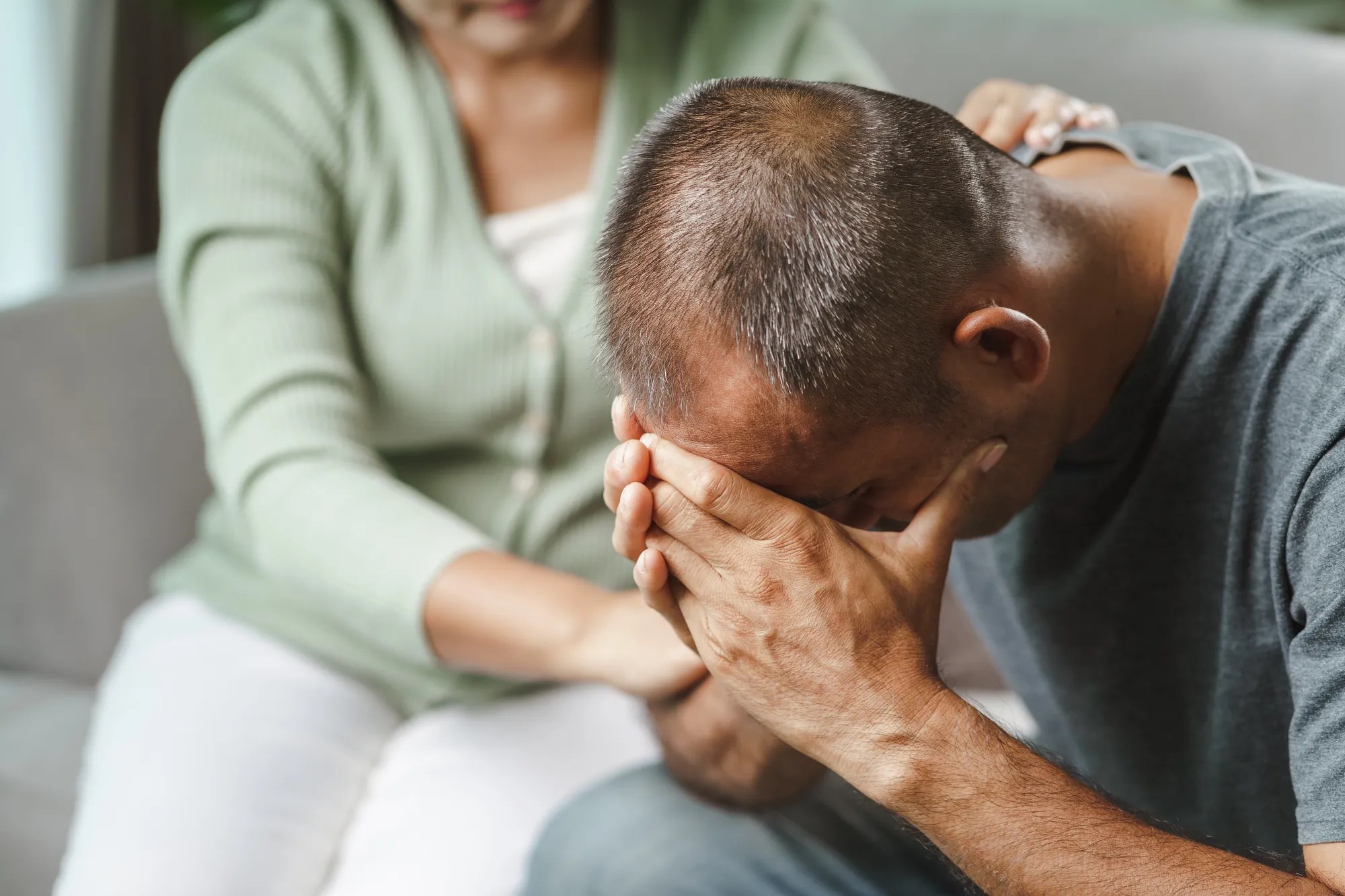The impact of mental illness on the family is very different from that of physical illness. Unlike most physical illnesses, mental illness takes a huge toll on the family. Living with someone with heart disease or cancer cannot give you heart disease or cancer, but living with a mentally ill relative can definitely impact your own emotional stability and well-being.
So, we got in touch with Dr Preeti Parakh, MD Psychiatry, Psychiatrist & Head, Mpower The Centre, Kolkata to get some expert advice on the best coping strategies when you’re living with and caring for a person who has chronic mental health issues and here’s what she had to say:
People often do not understand what happens with mental illness. They might empathise with someone who is sad because of a setback in his career, but they do not know what to say to a person who is depressed or anxious for no ostensible reason. It becomes even more difficult if the family member is irritable, aggressive, and suspicious. Substance abuse is also very difficult to deal with for the family members. Often the abnormal behaviour of the patient results in outbursts, unpleasant scenes, and embarrassing situations which involve the rest of the family as well. It, therefore, becomes imperative for the family members to take utmost care of their own mental health. There are some strategies that may help you face such situations in your own family.

1. Accept Them
One first needs to accept that living with someone having a mental illness is tough and it makes sense to look for support and guidance. There usually are a lot of doubts about what to say to the family member who has not been behaving normally, whether one should challenge them or accept whatever they are saying. Since the answer cannot be the same for every patient and every situation, it is better to discuss this in detail with the mental health professionals who are in charge of looking after the patient.
2. Don’t Blame Yourself
Often relatives of people with mental illness feel guilty and responsible for the illness. It is especially so for parents. They blame themselves for not realising that more often than not, mental illness has a biological component. So there is no point in wondering if they could have prevented the mental illness by doing something differently. Parents also need to reset their expectations from the child with mental illness as well as ensure that they are not neglecting the other healthy kids. The healthy siblings should be explained about the mental illness and involved in the care of the affected child.
3. Your Emotions Are Normal
Another cause of guilt and shame may be the inadvertent expression of anger or frustration by the caregiver towards the patient. Kindness and compassion towards one’s own self is the key here; remind yourself that you are a human being with natural limits and boundaries. There will be times when you might lose patience and become irritable. Do not judge yourself harshly for these lapses. Caring for an emotionally distressed person is often draining and may have negative consequences on your personal and professional life. You can try boosting yourself by looking into a mirror and reiterating that such emotions are normal and that you are still trying to do your best.

4. Room For Improvement
Marriage by itself is a complex relationship but having a spouse with mental illness further complicates the marital relationship. The healthy partner may find it difficult to cope with the additional responsibilities. If there is abuse and aggression involved, the marriage will probably break down. It, therefore, is imperative to remember that with time and proper treatment, mental illness is likely to improve. A good marital relationship has a big role in improving the prognosis of mental illness and acts as a major support system.
5. Don’t Forget To Take Care Of Yourself
Family members looking after a relative with mental illness are themselves at an increased risk of developing anxiety, depression, and insomnia along with other psychological and behavioural problems, mostly due to the stress involved. What is unfortunate is that these mental health problems go largely ignored because of being overshadowed by the more dysfunctional relative. It can increase the strife in the family and affect the family dynamics. Taking professional help can ensure that the situation remains under control.
6. Support Groups
There are support groups to help family members cope with the overwhelming stress. People are able to share their problems with others in similar situations and learn from their experiences. Sometimes sharing is the first step for healing. It also feels good to know that you are not alone. Family members should prepare plans to deal with crisis situations and ensure that all the potential caregivers are updated about the same. One should not shy away from asking for help during a crisis.
7. Family Therapy
Family therapy is another strategy that can help caregivers improve their mental health. It improves communication between the family members and can resolve conflicts. It can complement the primary treatment for the mentally ill relative but is not a substitute for the same. If there are some specific problems like financial issues, conflicts between parents and children, marital disputes, or addictions, family therapy can address these issues by helping family members understand each other better and developing a sense of togetherness.
Follow @malinisgirltribe on Instagram for more content like this and download the Girl Tribe by MissMalini App to join our Healing & Wellness community.

